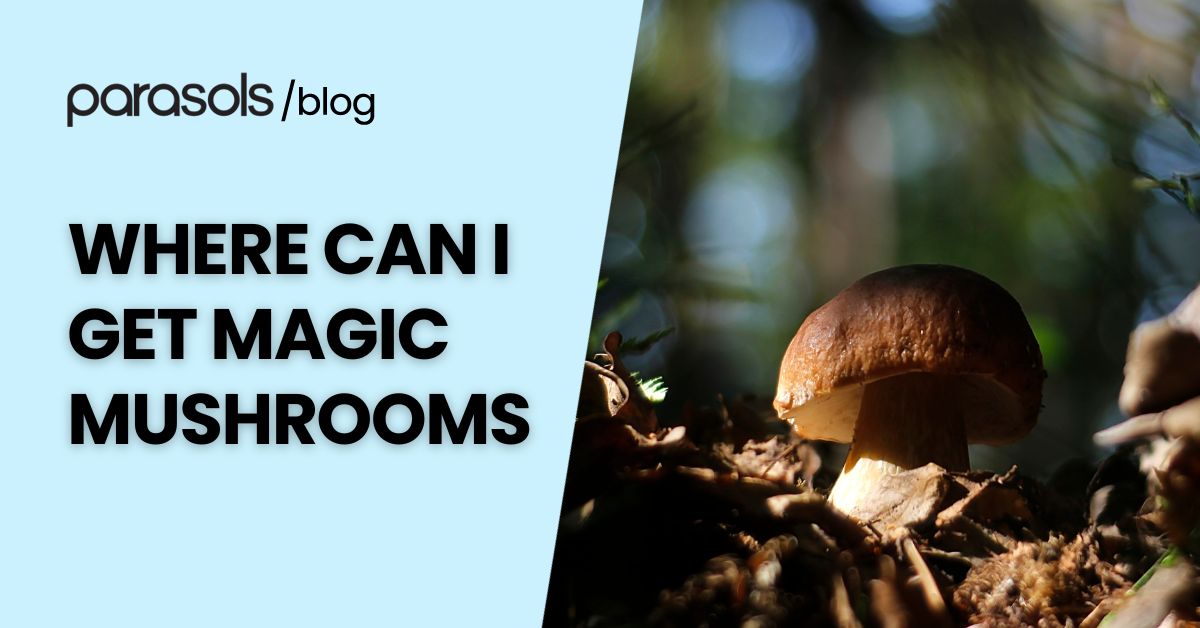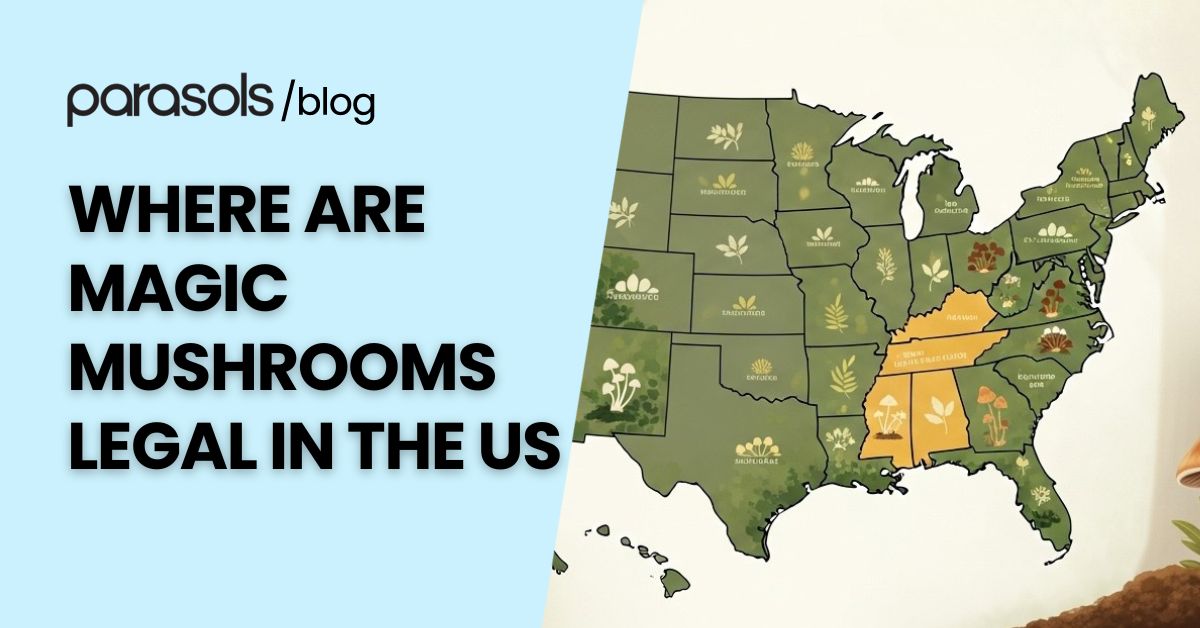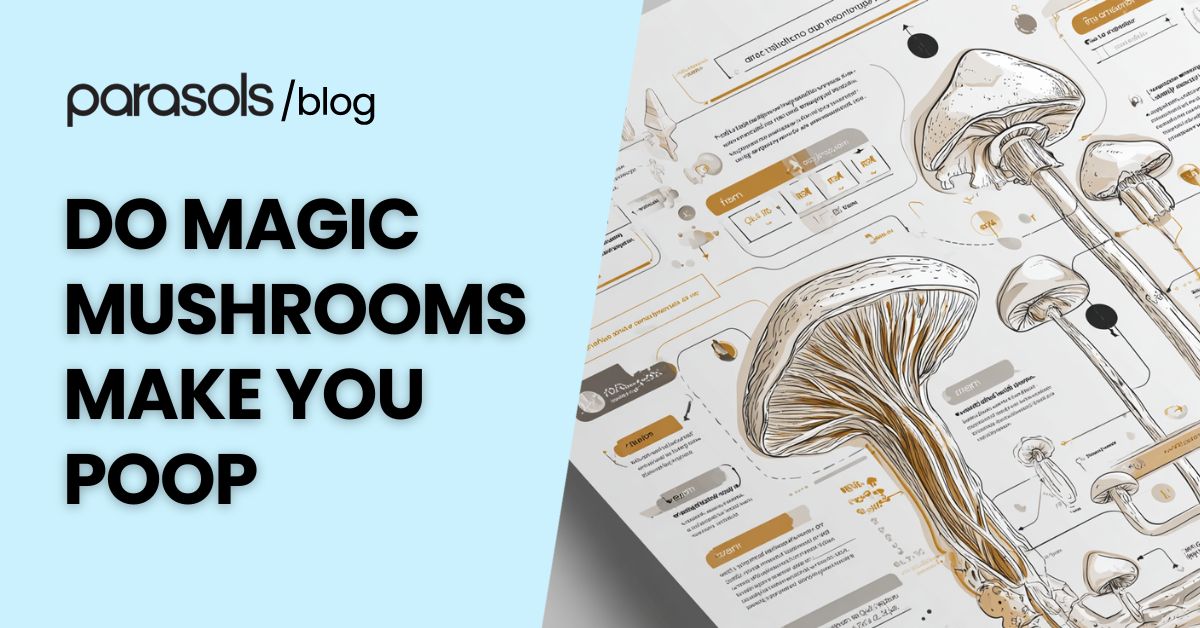Many people are becoming curious about magic mushrooms as they experience psychedelics for insight, healing, or new experiences. Some hear about psilocybin mushrooms easing depression, while others talk about challenging experiences or bad trips. It’s natural to wonder where people actually find these mushrooms and how they’re getting them today.
Key Takeaways
- Magic mushrooms are primarily obtained through five sources: wild picking, home cultivation, online or underground markets, licensed medical programs, and psychedelic retreats
- Picking wild mushrooms is highly risky due to lookalike toxic species
- Home cultivation and online purchases remain illegal in most areas unless authorized for research or medical use
- Legal access exists in limited programs in places like Australia, Canada, and some U.S. states such as Colorado
- Retreats in countries where psilocybin is permitted provide guided, controlled experiences
- Legal, non-psychoactive alternatives include Lion’s Mane, cannabis, and mindfulness practices for safer understanding
What are Magic Mushrooms?
Magic mushrooms are a type of fungi that contain the natural hallucinogens psilocybin and psilocin, which can alter a person’s mood, perception, and sense of reality. When consumed, they can produce hallucinogenic effects ranging from mild euphoria to intense visual and emotional experiences.
Where Can I Get Magic Mushrooms?

Many people looking to learn psychedelics or understand psilocybin mushrooms wonder where they actually come from. While access and legality vary widely, magic mushrooms are usually obtained from a few well-known sources that differ in safety, reliability, and risk.
1. Wild Mushrooms
Some users pick mushrooms growing naturally in forests, fields, or damp environments. However, this can be extremely risky because many poisonous mushrooms look similar to psilocybin mushrooms. Misidentification can lead to severe illness, muscle weakness, or even death. For safety, experts always advise against picking wild mushrooms unless you have professional guidance.
2. Home Cultivation
In some countries or states with specific exemptions, people legally grow magic mushrooms for medical or research purposes. This involves spores or grow kits, which are sometimes sold online where regulations permit. Home cultivation allows users to control the dose and form—like dried mushrooms, tea, or capsules—but it still carries legal and safety concerns depending on local laws.
3. Online and Underground Markets
Many individuals try to request access through online platforms or underground sources. These often operate outside official regulations, making quality, safety, and legality uncertain. The risk of contamination, fake products, or possession charges remains high, as psilocybin and psilocin are controlled substances in most countries.
4. Licensed Medical or Research Programs
In a few places, such as parts of Australia, Canada, and Colorado, limited access is granted through approved medical treatment programs or clinical research studies. Patients may receive psilocybin under professional supervision to treat conditions like depression or anxiety. Access usually requires approval from a national or federal health office and follows strict medical guidelines.
5. Retreats and Guided Psychedelic Experiences
Some people travel to countries where psilocybin use is permitted for therapeutic or spiritual purposes. These retreats provide controlled environments, trained facilitators, and post-experience support to reduce the risks of a bad trip or continued use. While still involving hallucinogenic substances, they emphasize safety, preparation, and proper administration to create meaningful experiences.
Are Magic Mushrooms Legal?
Magic mushrooms are illegal in most countries because they contain psilocybin and psilocin, which are classified as controlled substances. However, some places like Australia, Canada, and parts of the United States—such as Colorado and California—have granted limited exemptions or permits for medical, research, or therapeutic use under strict regulations.
Magic Mushroom Alternatives
Many people curious about magic mushrooms look for safer or legal alternatives that can offer similar effects or therapeutic benefits without breaking the law. Here are a few common options:
- Lion’s Mane Mushroom – A non-psychoactive mushroom known for supporting brain health, memory, and focus. It’s often used as a natural supplement rather than a hallucinogen.
- Amanita Muscaria – The red-capped mushroom often seen in folklore. It’s not a psilocybin mushroom but can produce altered states of consciousness; however, its effects and safety vary widely.
- Microdosing Psilocybin Capsules (in legal areas) – In countries or states with medical exemptions, some patients take small, regulated doses of psilocybin to help with anxiety, depression, or fear without intense hallucinations.
- Ayahuasca or LSD (under supervision) – These are hallucinogens sometimes used in therapeutic or spiritual contexts, but they also carry health and legal risks similar to magic mushrooms.
- Cannabis and CBD Products – Legal in many regions, cannabis offers relaxation and mood boosting without the intense hallucinogenic effects of psilocybin mushrooms.
- Meditation and Breathwork – While not a substance, practices that alter consciousness naturally can provide a sense of clarity, connection, or lightness similar to low-dose psychedelic experiences.
Final Thoughts

Curiosity about magic mushrooms continues to grow as more people seek natural ways to expand consciousness, heal emotionally, or find meaning. While psilocybin mushrooms may offer unique experiences, it’s essential to stay mindful of the health, legal, and emotional risks that can occur with their use.
If you’re learning psychedelics or alternatives, always prioritize safety, education, and professional support. To learn more about responsible use and legal access, read our full guide on safe psychedelic understanding.
Frequently Asked Questions
How long do magic mushroom effects last?
The effects of magic mushrooms usually begin 20 to 60 minutes after consumption and can last anywhere from 4 to 6 hours, depending on the dose, the person’s body chemistry, and the form of consumption—such as tea, capsules, or cooked mushrooms. Some users also report lingering emotional or sensory effects for several hours afterward.
What does a magic mushroom trip feel like?
A magic mushroom experience often involves altered perception, vivid colors or visuals, and changes in mood or sense of time. Some people describe feelings of deep connection, insight, or fear, while others may have challenging experiences known as a “bad trip.” The outcome depends on factors like mindset, dose, and environment.
Can you overdose on magic mushrooms?
While psilocybin mushrooms rarely cause fatal overdoses, consuming a high dose can lead to severe nausea, panic, anxiety, or dangerous behavior during hallucinations. Poisonous mushrooms mistaken for magic mushrooms can also cause life-threatening reactions. Seeking immediate medical support is crucial if symptoms become intense or physical reactions occur.
Are there long-term effects of using magic mushrooms?
Most short-term effects fade within hours, but some users may experience flashbacks, anxiety, or emotional sensitivity for days or weeks. Continued use can lead to psychological dependence or avoidance of daily responsibilities. Research is still ongoing to fully understand the long-term mental and emotional effects of psilocybin consumption.
Is it safe to mix magic mushrooms with alcohol or other substances?
Mixing psilocybin with alcohol, cannabis, LSD, or other drugs increases the risk of unpredictable reactions, confusion, nausea, and anxiety. Combining substances also makes it harder to manage the dose and can amplify the risk of a bad trip or mental distress. It’s safest to avoid mixing hallucinogens with any other drug or substance.
How can someone prepare for a safe psychedelic experience?
Experts recommend preparing in a calm, safe environment with a trusted person present, especially for first-time users. Taking a low dose, being well-hydrated, and avoiding alcohol or other drugs can reduce health risks. Integrating the experience through reflection, therapy, or support afterward can also help with emotional balance and understanding.



Leave a comment
All comments are moderated before being published.
This site is protected by hCaptcha and the hCaptcha Privacy Policy and Terms of Service apply.